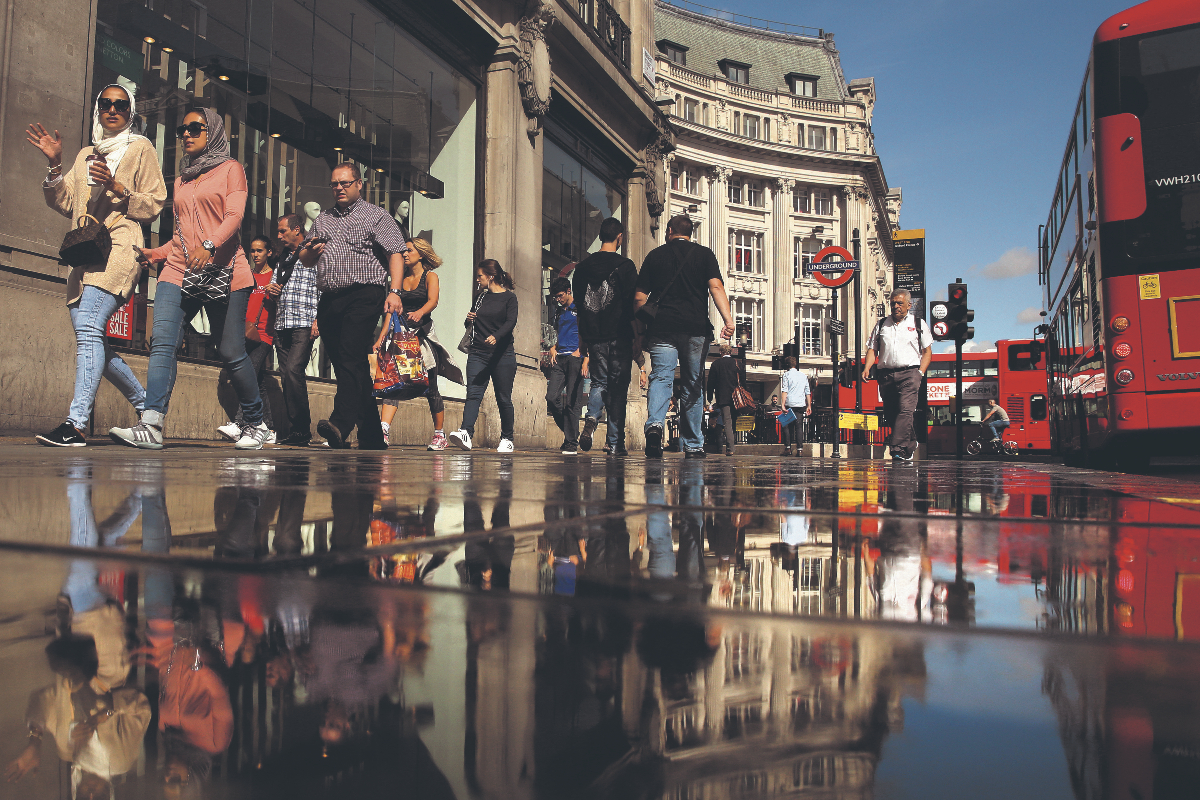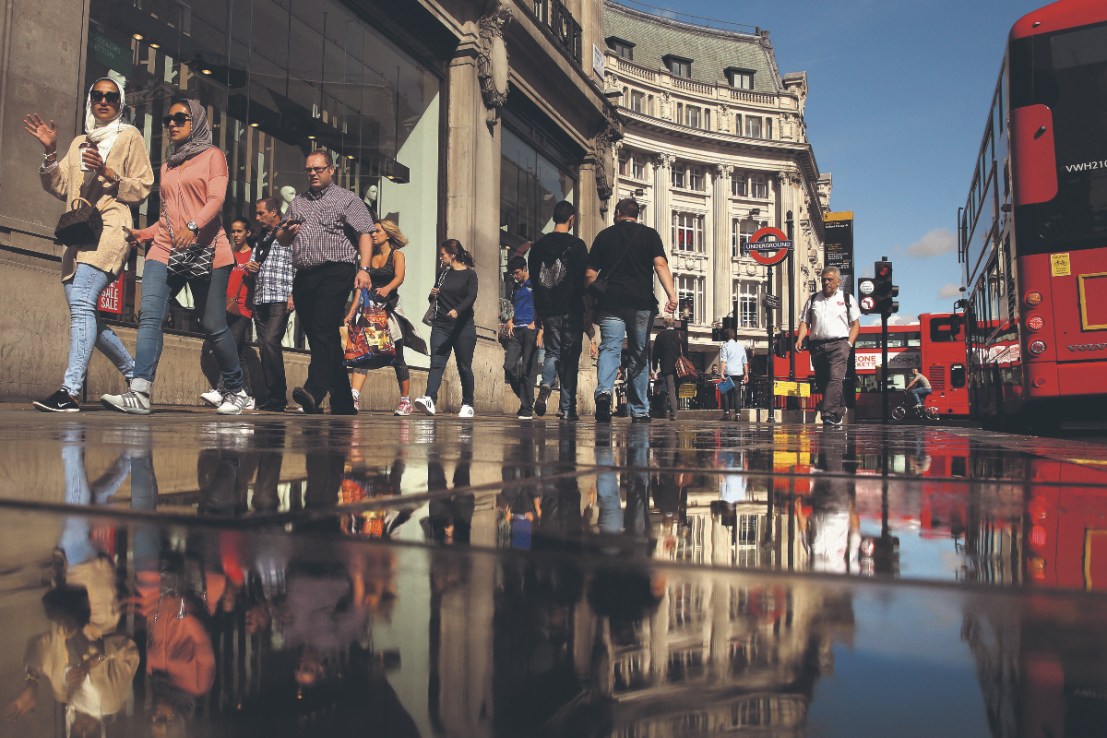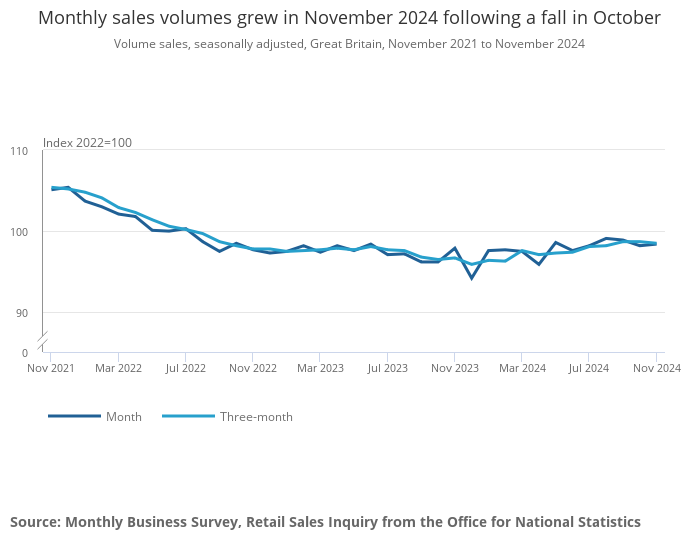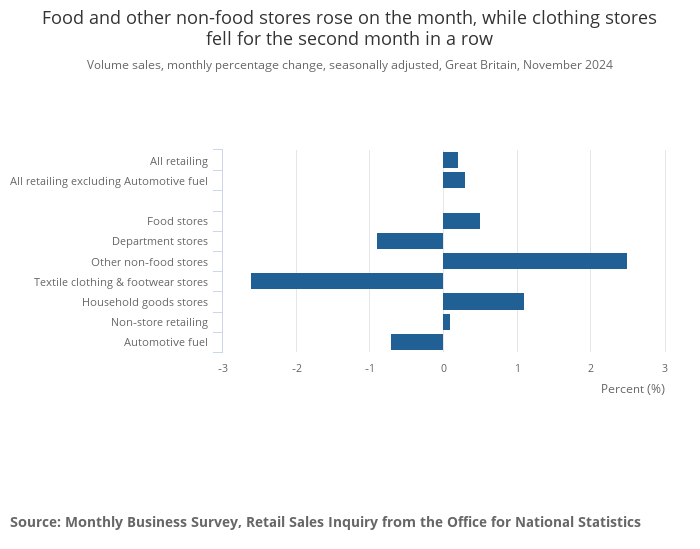UK retail sales rise slightly in November amid concern over golden quarter
The latest ONS data showed retail sales jumped 0.2 per cent last month, following a 0.7 per cent fall in October.


Retail sales edged up in November as a strong performance from UK supermarkets helped offset a sharp fall in clothing store sales.
The latest data from the Office for National Statistics showed retail sales were up 0.2 per cent last month, following a 0.7 per cent fall in October.
However, the rise was still much less than economists had expected and comes amid concern over a tougher than usual “golden quarter” leading up to Christmas, following the wide-ranging tax hikes announced in Rachel Reeves’ Autumn Budget.
The ONS said there had been a 0.3 per cent quarter-to-quarter rise in the three months to November.
Sales increased 1.9 per cent when compared with the same period last year, however the golden quarter of 2023 was one of the worst-performing in the UK in more than half a decade.

“Retail sales increased slightly in November following last month’s fall. For the first time in three months there was a boost for food store sales, particularly supermarkets,” Hannah Finselbach, senior statistician at the ONS, said.
“It was also a good month for household goods retailers, most notably furniture shops. Clothing store sales dipped sharply again, as a retailers reported tough trading conditions.”
Neil Birrell, Chief Investment Officer at Premier Miton Investors, said the results suggest the consumers is “feeling the pinch in a sluggish economy.”
“With the Bank of England keeping interest rates on hold and inflation in the system, there are concerns around growth prospects as we go into the new year. Christmas is a key period for retail sales and will give a further clue on short term outlook and may influence the BoE at its next meeting.”
Clothing store sales fell by 2.6 per cent in November, following a 3.5 per cent fall in October and leaving clothing store sales volumes at their lowest level since January 2022.
Online sales also fell, with the amount spent online – known as “online spending values” – dropping 4.3 per cent last month, the largest fall since March 2022.
British retailers have warned of an extra £2.5bn cost burden thanks to tax hikes including a rising National Insurance bill. They are also concerned over a slower-than-expected rise in sales from last year’s disastrously poor golden quarter.
A survey from the British Retail Consortium (BRC) at the end of September found one third of consumers expect to spend less on clothes over the period, and around a quarter expect to spend less on electronics, beauty and entertainment.

Kris Hamer, director of insight at the British Retail Consortium, said: “After a positive start to the Golden Quarter, November sales stagnated, with higher energy bills and low consumer sentiment impacting spending.”
“Clothing suffered from a fall in sales, with milder weather putting many off updating their winter wardrobe. Consumers were also holding out for the main black Friday sales week to pick up beauty and electrical deals, which saw their first falls of the year. The final two months of the year account for over one-fifth of all sales, making it a period of vital importance – particularly for non-food. With a weak November performance, retailers will hope that shoppers come out in force in the final days before Christmas.
“Given the shaky start to the festive season, retailers will be looking at the £7bn in new costs from the Budget facing the industry in 2025 with increased concern.”
“Higher employer national insurance contributions, a higher National Living Wage, and a new packaging levy will heap pressure on an industry that is already paying more than its fair share of tax. With sales growth unable to keep pace, retailers will have no choice but to raise prices or cut costs – closing stores and freezing recruitment. To mitigate this, Government must ensure that its proposed business rates reform does not result in any shop paying higher rates than they already do.”


